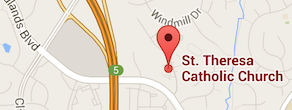Marriage Convalidation
Marriage Convalidation – sometimes referred to as “having one’s marriage blessed by the Church”
Catholics are bound to observe a certain form of marriage ritual in order that their marriage be valid. Canon law requires that Catholics enter into marriage by free mutual consent that is witnessed in a church by an authorized bishop, priest, or deacon and at least two other witnesses. Marriages in which one or both parties are Catholic and which are not witnessed by an authorized bishop, priest, or deacon, or which do not receive proper permission to take place in another forum, are considered invalid in the eyes of the Church.
It may be that the Catholic who entered into marriage outside the Church did not realize that these requirements existed, but also, it may be because one or both of the spouses was not free to marry in the Catholic Church because of a previous marriage or because they were awaiting an annulment. Also, the Catholic partner may not have been active in the Church and did not consider having a Catholic wedding.
Convalidation can be performed in instances in which a couple who was civilly married acknowledges that they are not in a valid marriage and seeks to regularize their union within the Church. A convalidation is not simply a renewal of the previous intention to marry but the creation of a valid marriage in the sight of the Christian community.
If you or your spouse have had a previous marriage bond, first seek information on the annulment process, or contact the parish to meet with a priest.
If you or your spouse have not been married previously and you wish to begin the Convalidation process, begin by obtaining:
- A copy of your civil marriage license
- A newly issued baptismal certificate, or proof of baptism, for the groom
- A newly issued baptismal certificate, or proof of baptism, for the bride
Once paperwork is in hand, contact the parish by filling out the Convalidation Form below:
